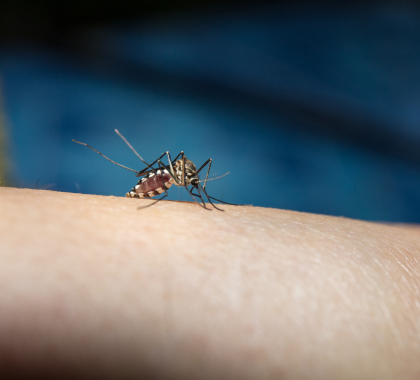Recently, the federal government and state regulators in Florida approved the release of a strain of genetically modified mosquitos into a small area of the Florida Keys in an effort to fight mosquito-borne tropical diseases such as chikungunya, dengue fevers, malaria, and yellow fever.
Under the plan, the biotech company Oxitec would be allowed to release hundreds of millions of genetically modified male mosquitoes of the Aedes aegypti subspecies into the Florida Keys.
Oxitec’s mosquitos have been modified so when they mate with females, the offspring they produce are incapable of surviving to adulthood. Laboratory tests and field tests have indicated widespread introduction of this mosquito could dramatically reduce the population of the disease-spreading mosquitoes and thus the spread of tropical diseases.
Possible Boon for Humanity
The World Health Organization (WHO) reports mosquitoes are among the deadliest animals on earth. The WHO attributes 438,000 deaths to the insects from malaria alone in 2015. Other mosquito-spread diseases claim thousands more lives each year.
If Oxitec’s trademarked “Oxitec’s Friendly” mosquitos prove successful in reducing overall mosquito populations across multiple generations, it could save millions of lives around the world over time.
In recent years, with the approval of their respective governments, Oxitec has released its genetically modified mosquitoes at sites in Brazil, the Cayman Islands, Malaysia, and Panama. Brazil reported mosquito populations fell by at least 90 percent in the locations Oxitec’s Friendly mosquitos were released in the year following their introduction.
‘New Generation … of Control Tools’
After a careful review of the potential environmental and human health impacts of introducing Oxitec’s Friendly mosquitos into the environment, the U.S. Environmental Protection Agency (EPA) granted Oxitec permission in May to undertake a pilot project with mosquitoes until 2022. By a vote of four to one, the board of the Florida Keys Mosquito Control District (FKMCD) has approved an experimental release of the genetically modified mosquitos as well. Oxitec expects to release the mosquitos in 2021.
The federal and state approvals are justified because Oxitec’s Friendly mosquitoes will prevent the spread of deadly diseases while causing no environmental harm, said Oxitec in a press release.
“Oxitec’s Friendly mosquitoes pose no risks to human health or the environment, including fish and other aquatic life, birds, bats, plants, invertebrates, or endangered species,” said the company in its news release.
“There is broad consensus amongst public health officials in the U.S. that a new generation of safe, targeted and cost-effective vector control tools are needed urgently to combat the growing threat posed by Aedes aegypti without impacting the ecosystem,” Grey Frandsen, Oxitec’s CEO said in the company’s press release.
‘The Science Is There’
The FKMCD currently spends as much as $1 million annually combatting disease-carrying mosquitos, through actions such as expensive aerial spraying of insecticides. In approving Oxitec’s release of its genetically modified mosquitos, the board indicated it hoped the procedure would be less expensive, more effective, and better for the environment than the mosquito control options it currently uses.
Florida needs more effective mosquito control technologies, Jill Cranny-Gage, a member of FKMCD’s board, told the Associated Press (AP).
“The science is there,” said Cranny-Gage. “This is something Monroe County needs.
“We’re trying everything in our power, and we’re running out of options,” Cranny-Gage said, according to the AP.
H. Sterling Burnett, Ph.D. (hsburnett@heartland.org) is the managing editor of Environment & Climate News.
